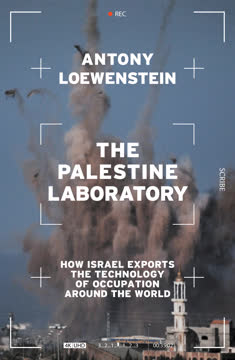Key Takeaways
1. Israel's "Palestine Laboratory" Exports Occupation Technology Globally
Israel has developed a world-class weapons industry with equipment conveniently tested on occupied Palestinians, then marketed as “battle-tested.”
The Palestine Laboratory. Israel leverages its occupation of Palestinian territories as a testing ground for weapons, surveillance technologies, and control tactics, which are then marketed globally. This "battle-tested" label becomes a unique selling point for Israeli security companies.
Commercializing Ethnonationalism. Israel's success lies in commercializing its ethnonationalist model, appealing to countries seeking to emulate its methods of control and separation. This involves selling not just arms and technology, but also the ideology of racial supremacy and the myth of Israeli self-reliance.
Global Reach. The Palestine Laboratory is a signature Israeli selling point. This advantage has been a long time in the making. Despite floundering militarily in Lebanon, Israel used the war as a selling point for its weaponry and tactics. Its propaganda offered an attractive elixir to nations that bought the illusion that the Jewish state could help them with their own internal problems.
2. Historical Complicity: Israel's Troubled Alliances with Despotic Regimes
I don’t care what the Gentiles do with the arms. The main thing is that the Jews profit.
Early Arms Trade. From its inception, Israel has engaged in arms sales with disreputable regimes, prioritizing economic gain and strategic alliances over human rights concerns. This includes supporting dictatorships in Latin America, Africa, and Asia.
Examples of Collusion:
- Chile: Israel aided Pinochet's regime with arms after a US embargo.
- South Africa: Israel maintained close ties with the apartheid regime, even offering nuclear weapons.
- Guatemala: Israel supported the genocidal Ríos Montt regime, providing military advisors and equipment.
Lack of Accountability. Israel's refusal to fully disclose its role in past atrocities and its continued support for repressive governments demonstrate a consistent pattern of prioritizing its own interests over ethical considerations.
3. 9/11 Turbocharged Israel's Defense Sector and the "War on Terror"
We have been fighting a War on Terror since our birth. We’ll show you how it’s done.
Capitalizing on Fear. The September 11 attacks provided Israel with a unique opportunity to market its "expertise" in counterterrorism and homeland security. This led to a surge in demand for Israeli weapons, surveillance equipment, and security training.
Start-Up Nation Narrative. Israel successfully spun its economic resilience and technological innovation into a narrative of self-determination, attracting global investment and admiration. This narrative often glosses over the ethical implications of its defense industry.
Global Impact. The "war on terror" has normalized and legitimized Israel's occupation policies, making its methods of control and domination more palatable to a global audience. This has strengthened Israel's position as a key player in the international security landscape.
4. Privatization of Occupation: Profiting from Palestinian Control
The Palestine laboratory is a signature Israeli selling point.
Outsourcing Control. Israel increasingly outsources aspects of the occupation to private companies, from security at checkpoints to surveillance of Palestinian populations. This allows the state to distance itself from direct responsibility for human rights abuses.
Monetizing Expertise. Israeli corporations showcase their experience in controlling Palestinians as a valuable asset for other countries facing similar challenges. This includes selling surveillance technology, border security systems, and crowd management techniques.
Erosion of Accountability. The privatization of the occupation further obscures lines of responsibility, making it more difficult to hold Israel accountable for its actions in the occupied territories. This also normalizes the idea of profiting from the oppression of others.
5. Separatism and Control: The Appeal of Israel's Model
The driving forces of this [defense] industry is that they want the conflict with the Palestinians to go forever.
The Allure of Separation. Israel's policy of separating Israelis and Palestinians, through walls, checkpoints, and segregated infrastructure, has become an attractive model for other countries seeking to manage unwanted populations. This includes the construction of barriers along borders and the implementation of strict immigration controls.
Gaza as a Laboratory. The Gaza Strip, with its high fences, constant surveillance, and restricted borders, serves as a testing ground for Israeli methods of control. This model is increasingly replicated in other parts of the world.
Erosion of Democracy. The pursuit of ethnonationalist goals often comes at the expense of democratic values, as governments prioritize security and control over individual rights and freedoms. This can lead to the erosion of civil liberties and the rise of authoritarianism.
6. Social Media's Role in Silencing Palestinian Voices
We feel social media is the only way left to get attention. Every post, tweet, video makes a difference. This is how we reach out to the masses of decent people and governments around the world.
Censorship and Bias. Social media platforms, despite claims of neutrality, often censor or suppress Palestinian voices, while allowing hate speech and incitement against Arabs to flourish. This reflects a systemic bias and a lack of understanding of the Palestinian experience.
Weaponizing Trauma. Israel effectively uses social media to weaponize Jewish trauma, portraying itself as a victim of terrorism and delegitimizing Palestinian resistance. This narrative resonates with Western audiences and reinforces support for Israeli policies.
Digital Occupation. The online world has become another battleground in the Israeli-Palestinian conflict, with surveillance, censorship, and disinformation used to control and suppress Palestinian expression. This further entrenches the occupation and limits Palestinians' ability to share their stories with the world.
7. The Enduring Appeal of Ethnonationalism and Security Expertise
We always hear here that we’re the only democracy in the Middle East. But you drive a few miles down the road and Palestinians don’t have the same rights.
Ethnonationalism as a Model. Israel's success in building a Jewish-majority state, often at the expense of Palestinian rights, has made it an appealing model for other ethnonationalist movements around the world. This includes groups seeking to prioritize one ethnic or religious group over others.
Security Expertise as a Commodity. Israel's decades of experience in counterinsurgency and border control have made its security expertise highly sought after by governments facing internal unrest or external threats. This has led to the proliferation of Israeli methods of control and repression around the world.
Moral Compromises. The pursuit of ethnonationalist goals often requires making moral compromises, including alliances with authoritarian regimes and the suppression of dissent. This can lead to a gradual erosion of democratic values and a normalization of violence.
8. The US-Mexico Border: Another Testing Ground for Israeli Technology
The Black and Palestinian struggles for liberation are interconnected, and we will not let up until all of us are free.
Militarizing Borders. The US-Mexico border has become a major site for the deployment of Israeli surveillance technology and security systems. This includes the construction of walls, the use of drones, and the implementation of biometric identification systems.
Learning from the Occupation. US law enforcement agencies have long sought training and expertise from Israeli security forces, learning tactics and strategies for controlling and suppressing unwanted populations. This has led to the "Israelification" of US security practices.
Human Cost. The militarization of the US-Mexico border has resulted in increased violence, human rights abuses, and migrant deaths. This highlights the dangers of applying Israeli methods of control in other contexts.
9. Unit 8200: The Ethical Dilemma of Cyber Warfare Expertise
The world is listening. Israeli arms sales in 2021 were the highest on record, surging 55 percent over the previous two years to US$11.3 billion.
Elite Intelligence Unit. Unit 8200, Israel's elite intelligence unit, plays a key role in developing and deploying cyber weapons and surveillance technologies. Its veterans often go on to found successful tech companies, further fueling the growth of Israel's defense sector.
Ethical Concerns. The unit's activities raise serious ethical questions about the use of surveillance technology, the targeting of civilians, and the potential for abuse. These concerns are often downplayed or ignored in the pursuit of national security.
Global Impact. The expertise gained in Unit 8200 is exported around the world, as its veterans develop and sell surveillance tools to governments and corporations. This has led to the proliferation of powerful technologies that can be used to suppress dissent and violate human rights.
10. The World is Becoming More Like Israel
The world is listening. Israeli arms sales in 2021 were the highest on record, surging 55 percent over the previous two years to US$11.3 billion.
A Model for the Future. Israel's success in building a strong, self-reliant state, often through the use of force and the suppression of dissent, has made it an appealing model for other nations seeking to assert their power and control. This includes countries in Europe, Asia, and Latin America.
The Erosion of Democracy. The adoption of Israeli methods of control and separation often comes at the expense of democratic values, as governments prioritize security and ethnonationalism over individual rights and freedoms. This can lead to a more authoritarian and repressive world.
The Need for Resistance. To counter this trend, it is essential to challenge the normalization of Israeli policies and to promote alternative models of governance based on equality, justice, and human rights. This requires a global movement that recognizes the interconnectedness of struggles for liberation and stands in solidarity with all those who are oppressed.
Last updated:
FAQ
What is "The Palestine Laboratory: How Israel Exports the Technology of Occupation Around the World" by Antony Loewenstein about?
- Core focus: The book investigates how Israel has developed and exported its occupation, surveillance, and control technologies, using the Palestinian territories as a testing ground.
- Historical and global context: It traces the evolution of Israel’s arms and security industries from 1948 to the present, showing their impact on global policing, border control, and repression.
- Broader implications: Loewenstein connects Israel’s practices to the rise of ethnonationalism and authoritarianism worldwide, highlighting the global consequences of these exports.
Why should I read "The Palestine Laboratory" by Antony Loewenstein?
- Unveiling hidden networks: The book exposes the global reach of Israeli military and surveillance technology, revealing connections often overlooked in mainstream discussions.
- Critical perspective: It challenges dominant narratives by examining the ethical and political contradictions of Israel’s defense industry and its complicity with authoritarian regimes.
- Contemporary relevance: Understanding these dynamics is crucial for grasping current trends in global surveillance, repression, and the erosion of democratic norms.
What are the key takeaways from "The Palestine Laboratory" by Antony Loewenstein?
- Israel as a global exporter: Israel is a leading supplier of arms and surveillance technology, using the occupation as a “laboratory” for testing and marketing these tools.
- Human rights impact: These technologies are widely used to suppress dissent, target minorities, and facilitate human rights abuses worldwide.
- Ethnonationalism and repression: The book warns of the dangers posed by the global spread of ethnonationalist ideologies and the normalization of digital repression.
What is the "Palestine Laboratory" concept in Antony Loewenstein’s book?
- Definition: The “Palestine Laboratory” refers to Israel’s use of occupied Palestinian territories as a real-world testing ground for military, surveillance, and control technologies.
- Export model: Technologies and tactics refined in Palestine are then marketed and sold globally to states seeking to control or repress populations.
- Ideological export: Beyond hardware, Israel exports an ethnonationalist ideology that appeals to authoritarian and far-right regimes.
How does Antony Loewenstein describe Israel’s arms and surveillance industry in "The Palestine Laboratory"?
- Battle-tested marketing: Israeli companies promote their products as “battle-tested” on Palestinians, enhancing their appeal to international buyers.
- Global sales: Israel is among the world’s top arms exporters, selling to both democracies and dictatorships, often disregarding human rights concerns.
- Profit over ethics: The industry prioritizes financial and strategic gains, with little accountability for how exported technologies are used.
What is the significance of Unit 8200 in "The Palestine Laboratory" by Antony Loewenstein?
- Elite intelligence unit: Unit 8200 is Israel’s premier signals intelligence and cyber warfare division, central to mass surveillance of Palestinians.
- Tech incubator: Many veterans of Unit 8200 go on to found or staff leading Israeli cyber-surveillance firms, exporting their expertise globally.
- Moral controversy: Some former members have publicly criticized the unit’s role in abuses, such as blackmail and indiscriminate spying.
How does "The Palestine Laboratory" by Antony Loewenstein explain the role of the NSO Group and Pegasus spyware?
- Pegasus as a cyberweapon: Pegasus is a powerful phone-hacking tool sold to governments, often used to target activists, journalists, and dissidents.
- State-backed operations: NSO Group operates under the close supervision of Israel’s Ministry of Defense, making its sales part of state policy.
- Global scandals: The spyware has been implicated in numerous human rights abuses, sparking international efforts to regulate or blacklist NSO.
How does Antony Loewenstein describe Israel’s relationship with authoritarian regimes in "The Palestine Laboratory"?
- Historical alliances: Israel has a long record of selling arms and surveillance tools to dictatorships in Latin America, Africa, and Asia.
- Strategic pragmatism: These relationships are driven by diplomatic and strategic interests, often overriding human rights concerns.
- Ongoing complicity: Despite evidence of abuses, Israeli officials and companies frequently deny responsibility, prioritizing alliances and profits.
How does "The Palestine Laboratory" by Antony Loewenstein address the global impact of Israeli technology on border control?
- Exported border technologies: Israeli firms supply surveillance towers, drones, and biometric systems to borders worldwide, including the US-Mexico and EU frontiers.
- Militarization of borders: These technologies contribute to the criminalization and endangerment of migrants and indigenous peoples.
- Testing in Palestine: The occupied territories serve as a laboratory for developing and refining these border control methods before global export.
How does "The Palestine Laboratory" by Antony Loewenstein discuss the role of social media companies in censoring Palestinian voices?
- Systematic censorship: Platforms like Facebook, Instagram, and TikTok routinely remove or restrict Palestinian content, often under Israeli government pressure.
- Algorithmic bias: Palestinian posts are frequently misclassified as incitement, while anti-Palestinian content often remains online.
- Lack of representation: Few Palestinians hold key policy roles in these companies, leading to biased moderation and silencing of Palestinian narratives.
How does Antony Loewenstein link Israel’s occupation to global trends in ethnonationalism and authoritarianism in "The Palestine Laboratory"?
- Ideological export: Israel’s model of privileging one ethnic group is increasingly admired and emulated by far-right and authoritarian leaders worldwide.
- Template for repression: Israeli methods of surveillance and control serve as blueprints for other regimes facing internal dissent or minority populations.
- Democracy’s decline: The book argues that as satisfaction with democracy wanes, Israel’s model becomes more attractive to leaders seeking to maintain power.
What are some key examples of countries or regions influenced by Israeli occupation technology and ideology in "The Palestine Laboratory" by Antony Loewenstein?
- United States: US police forces have received Israeli training, adopting militarized tactics and surveillance methods.
- Europe and the EU: Israeli drones and surveillance tech are used by European border agencies, impacting migration and border control.
- India and Kashmir: India’s occupation of Kashmir mirrors Israeli policies, with Israeli arms and training supporting Indian repression.
- Africa and Latin America: Israel has armed and trained regimes in countries like Guatemala, South Sudan, and Myanmar, often accused of severe human rights abuses.
Review Summary
The Palestine Laboratory examines Israel's use of occupied territories as a testing ground for military and surveillance technology, which it then exports globally. Readers found the book informative, well-researched, and eye-opening, highlighting Israel's role in global conflicts and its monetization of occupation. Many praised Loewenstein's thorough investigation and clear writing, though some felt the book became repetitive. Critics noted the book's focus on Israel's tech exports rather than its direct impact on Palestinians. Overall, reviewers considered it an important, if disturbing, read that contextualizes Israel's military apparatus and global influence.
Similar Books

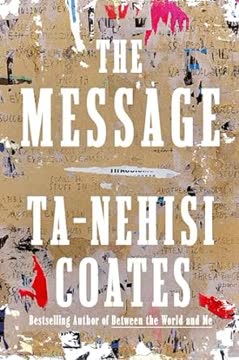

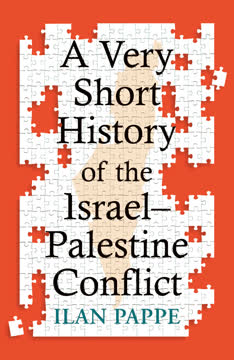
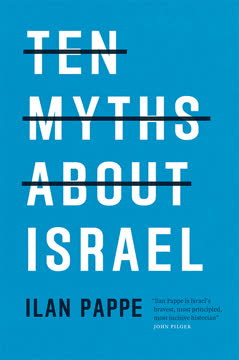


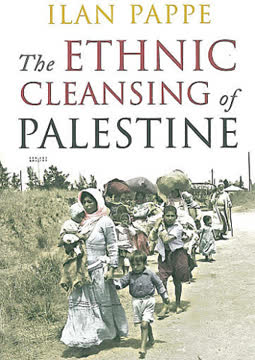
Download PDF
Download EPUB
.epub digital book format is ideal for reading ebooks on phones, tablets, and e-readers.
